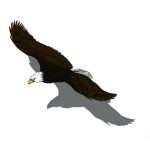By Chantelle Pence.
Crestone has come to be known as a spiritual community. But is it really? What if it’s just a place. A place that people came to for practical reasons. What if spirituality is found in the simple things? Water. Food. Shelter.
It’s the simple people who seem to hold the qualities that spiritual paths seek; those who live close to the earth and use their hands. They do the work quietly. With honesty. Focus. Discipline. It’s only those who are shored up within themselves who can then lend a hand to their fellow human.
Robin Blankenship is such a woman. She has had a close relationship with the land for most of her life. Tanning animal hides. Eating local. Building a home, family, and business. She is a realist. And she is bursting with energy that could only be described as spiritual. Her spirit shines from her body. No mantras. No muttering. She just rolls up her sleeves and gets things done. And she smiles while working.
Robin and her then-husband came to the area in the ’90s to live and raise their family. They were both outdoor educators and sought a life aligned with the systems of nature. Crestone-Baca Grande was sparsely populated at the time. And the climate was quite different than it is now. Robin remembers neighbors snowshoeing to a New Year’s Eve party. The snowpack was thick on the mountains, and the ground was white for most of the winter.
The cultural climate was characterized by an owner-builder movement — people looking to live with some freedom from financial liability in a place where you could source from the land and your own hard work. They built alongside neighbors using what was at hand. “Money is not the only resource,” she explained. She continues to look beyond the prism of the monetary system to all forms of riches. And has chosen a life in one place. Keeping alive some old ways.
It is fairly common to dabble with stone-age skills as a form of recreation. It’s far less likely to encounter individuals who integrate primitive ways into a modern space. Some might question the relevance of taking the time for ancient practices such as hunting, gathering, and making stick fires. A conversation with Robin, or an immersive experience at her Earth Knack training center, would answer that. Robin holds classes for those who want to learn ancestral survival skills and fine tune their interaction with the natural world.
Folks who have gone back to the basics are often misunderstood. Robin spoke about those who work hard to live simply. “We get pigeonholed. People think I’m trying to escape but that’s not what I’m doing at all,” she clarified. She is living a life of rich experience. Robin becomes animated when she describes her way of life.
“It’s about water, food, and shelter,” she said. “Even in the cities, that’s all they are doing.” She questions the need for homes that cost millions of dollars to build and sustain — and if people are really more content than those who live with minimalism. She described the items she makes by hand, and the long-term satisfaction she gets from the craftsmanship. “When things come too easily, without a deep connection and understanding, they are disposable and people are on to the next thing.”
There has been a resurgence of interest in the study of ancestral knowledge. For most people it is a passing phase, as regular practice would require a whole lifestyle change. But Robin is hopeful. “If you don’t walk the journey you don’t get the benefit. There is no class or idea that will give you the outcome.” It takes practice to build skills to interact with nature. And a willingness to be uncomfortable at times.
“People want to exterminate the mosquitoes (for their own comfort) but they don’t understand the complexity of our ecosystem!” she exclaimed. Robin holds a fierce stance in protection of natural systems. “If you don’t like what’s here, there are lots of other places to go.” She expressed dismay at the rapid changes that the community is going through. There are few places left where people can live with the land, and she doesn’t want to see Crestone/Baca become another place where people trample the earth instead of live with it.
She is passionate about her work, which could be described as activating the indigenous mind. We have a deep ancestral history and, as Robin expressed, “we don’t change our evolution overnight.” She teaches people to work with the realm of biology; with our own blood and bones and inner coding.
She is a teacher who spans many disciplines. She earned degrees and licensing that helped in the creation of the Crestone Charter School. The school was a back-to-the-basics education system. New systems and beliefs came in and the school changed. “We sold our soul a little at a time.” Robin alluded to a chapter of history that may have been painful to some. Change often brings pain, which is often when time-tested traditions reveal their value. She keeps a stiff back about preserving old ways and admits that some of her opinions are archaic. But she carries the spark of wonderment.
“I am open to being startled into new understanding,” she said. Nature draws forth heightened awareness, and Robin has observed the natural world long enough to recognize consistent patterns. She knows that nature is in charge. No matter how skilled of an outdoorswoman she is, she is careful to not get too cocky. That’s when mistakes happen. She encourages people to live with “wonder, awe, and gratitude. Invite yourself into those spaces.”
When questioned how she bridges stone-age ways with the new-age tidal wave, Robin was decisive. “I have no intention of bridging to the new. I’m just gonna be me,” she said cheerfully.
She illustrated a story where traditional ways met new age, while she was out driving one day. “I saw a young woman in a long, flowing purple dress. She was dancing in front of a buck with large antlers.” It was the fall season, the time of rut. Robin pulled over and advised the dancer to get away from the deer for her own safety. The gal was certain in her own reasoning, but Robin wasn’t going to engage illogic. “No, honey,” Robin told the unsuspecting student. “You don’t know. Otherwise, you would know this isn’t the time.” Robin gets right to the point of nature.
Before the temples. And the stupas. And the spiritual learning centers. Nature was the elder teacher. If everything were to fall tomorrow the land would remain. Various systems may emerge and change but the earth is constant. Perhaps the greatest prayers are in gratitude of simple stability. Wood. Water. Food. Shelter. The ability to master skills and share them with others.
Robin Blankenship is a community member, an author, educator, and owner of Earth Knack school.
For more information go to www.earthknack.com


